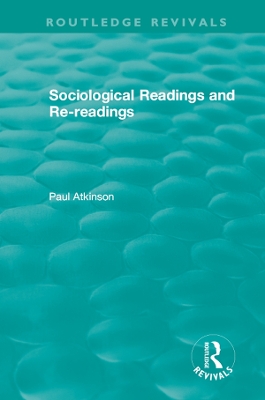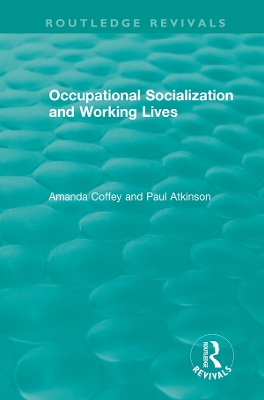Routledge Revivals
4 total works
Basil Bernstein is one of the most influential British sociologists, yet his work is widely misunderstood and misinterpreted. Contentious debates over his theories of language have often obscured the underlying themes and continuities in Bernstein's sociological inspiration. First published in 2004, this book redresses the balance. Rather than reviewing the sociolinguistic work by Bernstein and his collaborators, it portrays Bernstein as a sociologist in the Durkheimian tradition. It is argued that Bernstein, as a structuralist, uses his theory of 'codes' as a representation of the symbolic forms of power and the social division of labour.
This book would be of importance to those interested in the sociology of education, language and society, anthropological linguistics and communication studies.
Published in 1996, this book comprises a number of essays by Paul Atkinson in which he reflects on processes of reading and writing in the social sciences. Topics covered include: ethnographers’ ‘confessions’, an analysis of the style of Erving Goffman, a reflection of his own experiences of re-reading work, and a discussion of the challenges of reading an alien discipline.
This book was originally published as part of the Cardiff Papers in Qualitative Research series edited by Paul Atkinson, Sara Delamont and Amanda Coffey. The series publishes original sociological research that reflects the tradition of qualitative and ethnographic inquiry developed at Cardiff. The series includes monographs reporting on empirical research, edited collections focussing on particular themes, and texts discussing methodological developments and issues.
Occupational Socialization and Working Lives (1994)
by Amanda Coffey and Paul Atkinson
Published in 1994, this book gathers together a series of original studies on occupational socialization and the everyday realities of work. It includes detailed, empirically based accounts of a variety of occupational settings. Included are: social workers; trainee midwives; prison officers; accountants; teachers; psychiatrists; postgraduate research students. They all reflect the tradition of qualitative research that has been developed at Cardiff.
This book was originally published as part of the Cardiff Papers in Qualitative Research series edited by Paul Atkinson, Sara Delamont and Amanda Coffey. The series publishes original sociological research that reflects the tradition of qualitative and ethnographic inquiry developed at Cardiff. The series includes monographs reporting on empirical research, edited collections focussing on particular themes, and texts discussing methodological developments and issues.


